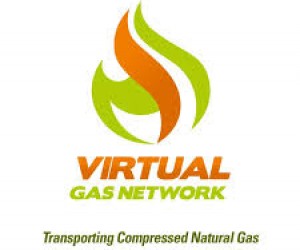Natural gas is a versatile, clean-burning, and efficient fuel that is used in a wide variety of applications.
Natural Gas contains many different compounds, the largest component is methane, a compound with one carbon atom and four hydrogen atoms (CH4). It is non-toxic and has no potential for ground or water contamination in the event of a fuel release.
Among the eco-friendly energy sources, Compressed Natural Gas (CNG) is increasingly becoming the fuel of choice in various industries. The most significant factors in the growing use of CNG is the cost and environmental aspects. The cost of Natural Gas has historically proven to be more stable than electricity, while also scientifically proven to be far friendlier to the environment than coal.
In 2003, Natural Gas passed coal as the energy source with the largest installed electricity generation capacity in the United States.
Natural Gas sees a broad range of uses in the commercial and industrial sectors, usually as a source of heat and power, and as an input in various production industrial processes such as paper, pulp, metals, stone, plastic, chemicals, glass and food processing.
However, the true beauty of this fuel is how versatile is it. Compressed Natural Gas can be used to meet various energy demands in various industries, commercial and industrial. This includes electrical energy demands. One of the rapidly growing uses of Natural Gas today is for the generation of electrical power. Natural Gas can fuel power plants generating electricity through gas turbines, directly using the hot exhaust gases of fuel combustion.
Across the globe, Natural Gas plants are used to support energy demand at peak periods where electricity may be used at its highest. This is also applicable when production increases and increased energy is required. Natural Gas as an alternative option is increasingly becoming crucial in South Africa, the Carbon Tax Bill is set to place serious constraints to the combustion of coal.
Natural Gas can also be used as a transportation fuel, for businesses that require active fleets, the same gas used to fire heavy equipment, can be used to fuel the company vehicles, from the small run-around vehicles to heavy-duty vehicles. Diesel is usually deemed the fuel of choice, however, its high costs, need for regular servicing and high maintenance costs have influenced the choice of many to convert to CNG.
The biggest challenge of CNG as an equipment and transportation fuel is the lack of proper infrastructure. CNG Holdings identified the need for easily accessible Natural Gas. Through its sub-divisions, NGV Gas and Virtual Gas Network, CNG Holdings supplies compressed natural gas through via a virtual network. This has created a reliable commercially-scaled supply of natural gas in South Africa. The Virtual Gas Network is available to businesses anywhere within a 300-km radius of Johannesburg and by 2020 throughout most of Kwa-Zulu Natal.
Through this innovative modular road transport system, Virtual Gas Network can safely and economically transport natural gas to refuelling stations, gas distribution networks, industries, power generation systems, as well as to customers who are not on an existing gas pipeline.
Converting equipment and vehicles to run on CNG is as easy as supplying it. All CNG installations and conversions are completed by SAGA-qualified and SAQCC-certificated Natural Gas Practitioners.
The Virtual Gas Network is exactly that; Virtual. This means a lack of piped infrastructure is never an obstacle to prospective users of Natural Gas. This simple, economical, environmentally friendly and versatile gas has now been made as easily accessible as any other fuel, if not easier.










